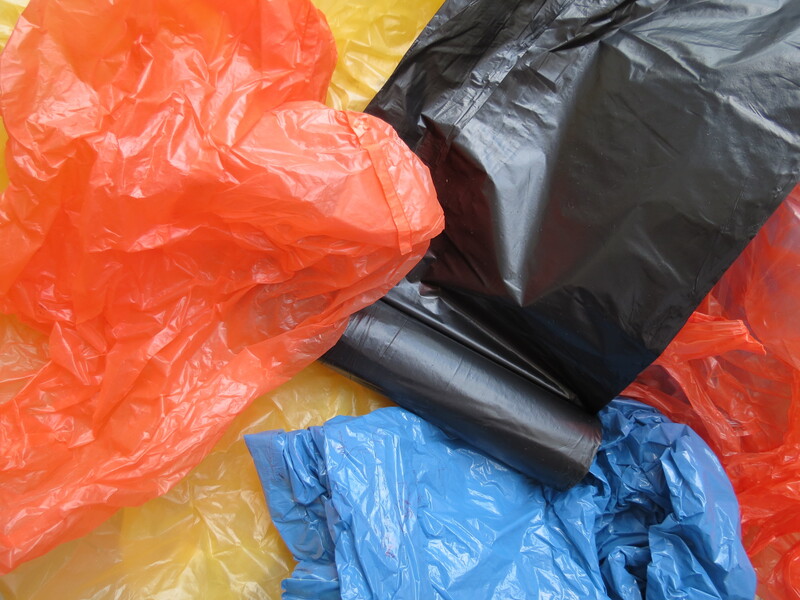Keep Your Freezer Safe: How to Store It Properly
Posted on 14/06/2025
Keep Your Freezer Safe: How to Store It Properly
The freezer is an indispensable household appliance, helping us reduce food waste, store meals for busy days, and preserve bulk purchases. But to truly reap its benefits, it's crucial to know how to store your freezer safely and properly maintain it. In this in-depth guide, we'll unravel the best practices for safe freezer storage, maintenance tips, food safety, and organization hacks that ensure your frozen goods remain fresh and protected.
Why Is Proper Freezer Storage So Important?
Freezer safety is not just about keeping food cold. Improper storage can lead to:
- Food spoilage and waste
- Unpleasant odors
- Loss of nutrition and flavor
- Freezer burn (tough, dry, and discolored spots on food)
- Poor energy efficiency and higher electric bills
- Possible health risks from foodborne illness
That's why it's vital to take freezer safety seriously and understand the essentials of proper freezer storage.

Optimal Freezer Organization: Maximizing Space and Maintaining Order
1. Keep Foods Grouped and Labeled
- Group similar items together--for example, meats on one shelf, vegetables on another, and desserts in one section.
- Use clear bins or baskets to separate categories and make items easier to find.
- Label all items with content and date using freezer-safe markers or pre-printed labels.
- First In, First Out (FIFO) method: Always place newer items behind older ones. This reduces waste, as older items are used first.
2. Mind the Temperature Zones
Did you know your freezer isn't uniformly cold? Air circulation and temperature vary in different spots:
- The back and bottom tend to be the coldest.
- The door is warmest (better for nuts, bread, or ice).
- Keep meats and perishables deep inside for maximum protection.
3. Leave Space for Airflow
- Don't overpack your freezer. Leave at least an inch of space between items so cold air can circulate.
- Packed too tightly? Some foods may not freeze quickly or evenly, causing uneven thawing and degradation.
4. Flat Freezing Saves Space
- Freeze liquids and leftovers flat in zip-top bags for efficient stacking.
- Once solid, you can stand them upright like folders in a filing cabinet for easy retrieval.
Choosing the Right Freezer Containers: Preventing Freezer Burn and Odors
Not all packaging is suitable for long-term freezer use. Here's what you need for safe and proper freezer storage:
- Freezer-safe bags: Heavy-duty zip-top bags minimize air and moisture exchange.
- Rigid plastic containers (with tight-fitting lids): Great for soups, stews, and batch-cooked meals.
- Foil or freezer paper: Wrap meat and fish in foil, wax paper, or parchment before placing in bags for extra protection.
- Avoid regular glass: It can crack in cold temperatures unless it's labeled freezer-safe.
Pro Tip: Double-wrap foods if you plan to keep them more than a month. This prevents freezer burn and preserves flavor.
How to Store Common Foods in the Freezer Safely
Storing Meat and Poultry
- Portion out into meal-sized packages and wrap tightly to minimize air exposure.
- Label each package with type and date.
- Keep meats on the bottom shelf to prevent drips contaminating other foods during thawing.
Freezing Fruits and Vegetables
- Blanch most vegetables before freezing to preserve color, flavor, and nutrients.
- Flash freeze fruits (spread on a tray) before transferring to bags to avoid clumping.
Storing Bread and Baked Goods
- Slice bread before freezing for convenience.
- Wrap muffins and cakes individually, then store in bags for easy access.
Dairy and Freezer Storage Safety
- Hard cheeses, butter, and most baked goods freeze well.
- Cream-based sauces and soft cheeses can change texture (be cautious).
- Store dairy products toward the back of the freezer for consistent, colder temperatures.
Prepared Meals & Leftovers
- Cool thoroughly before freezing to maintain food quality and prevent freezer temperature spikes.
- Portion into meal-sized containers for fast, safe reheating.
- Always mark the date and use within recommended storage periods.
How to Avoid Freezer Burn and Preserve Freshness
Freezer burn is the enemy of tasty, appealing frozen food. It happens when cold, dry air pulls moisture from food, leaving it discolored and tough. Prevent freezer burn by:
- Packaging food tightly with minimal air
- Using vacuum sealers for high-value or long-term foods
- Not freezing items for longer than necessary. Use or rotate items according to recommend freeze times.
- Setting your freezer at the ideal temperature - zero degrees Fahrenheit (-18?C) or lower.
Essential Freezer Maintenance Tips
Keeping your freezer in great condition is vital for safe food storage and efficient operation.
- Check the temperature regularly with an appliance thermometer.
- Defrost manual freezers when frost buildup reaches 1/4 inch thick. This prevents overworking and energy waste.
- Clean the interior every few months using mild soap and water. Never use harsh chemicals inside your freezer.
- Wipe spills up immediately to prevent freezer odors and contamination.
- Ensure the door seals (gaskets) are clean and intact so cold air doesn't escape.
How to Defrost Your Freezer Properly
- Unplug the freezer and remove all contents, storing them in a cooler temporarily.
- Place towels or a shallow pan under the freezer to catch water from melting ice.
- Allow the ice to melt naturally, or speed things up by placing bowls of hot water inside (never use sharp objects to chip away ice).
- Wipe down the inside, then plug it back in and allow to reach temperature before restocking.
Food Safety: What Not to Freeze and Storage Limits
Not everything freezes well. Some foods suffer in texture, taste, or can even become unsafe.
- Cucumbers, lettuces, and high-water-content fruits/veggies typically become mushy. Best used in smoothies or cooked dishes post-freeze.
- Eggs in the shell can crack and become unsafe.
- Cream-based sauces may separate after freezing.
- Dairy with high water content (such as ricotta or cottage cheese) will become grainy.
Always rotate supplies and be mindful of recommended maximum storage times to ensure both taste and safety:
| Food Item | Maximum Storage Time |
|---|---|
| Fresh steak, chops, or roasts | 4-12 months |
| Ground meats | 3-4 months |
| Poultry (whole) | 1 year |
| Poultry (pieces) | 9 months |
| Bread and baked goods | 2-3 months |
| Fruit | 8-12 months |
| Vegetables | 8-12 months |
| Soups and stews | 2-3 months |
| Ice cream | 1-2 months |
Power Outages and Freezer Safety
A power loss can quickly compromise the safety of your frozen food. Here's how to protect your food during outages:
- Keep the freezer door closed as much as possible (a full freezer stays cold at least 48 hours if unopened).
- Group frozen foods together to keep them colder longer.
- If your power will be restored within 24-48 hours, most contents should be safe.
- Throw away any items that have thawed and risen above 40?F for more than 2 hours.
- When in doubt, throw it out! Safety comes first.
Eco-Friendly Freezer Storage Habits
- Opt for reusable, BPA-free containers and bags instead of single-use plastic.
- Defrost your freezer regularly--this simple task can reduce energy usage by up to 30%.
- Organize so you use up older items first, reducing food waste.
- Maintain a full freezer: when full, it uses less energy, but don't overpack and compromise airflow.

Frequently Asked Questions About Freezer Safety
1. How often should I clean my freezer?
Clean and organize your freezer every 3-4 months, or sooner if you notice leaks or odors. Defrost manual models as needed.
2. Can I refreeze thawed foods?
Only refreeze foods that have thawed in the refrigerator and have not reached above 40?F for more than 2 hours. Quality may suffer slightly.
3. What temperature should my freezer be set at?
Always keep your freezer at 0?F (-18?C) or lower for safe food storage.
4. Are chest freezers safer than upright freezers?
Both types are safe when maintained correctly. Chest freezers tend to keep food cold longer during power outages, while upright freezers are easier to organize.
Conclusion: Store Your Freezer Properly to Stay Safe
Maintaining your freezer isn't just about storing food--it's about keeping your family safe, reducing waste, and maximizing food quality. By understanding the best ways to keep your freezer safe and store it properly, you ensure your investment lasts for years while also protecting your household's health and your budget.
Make freezer safety a priority in your home with the tips above and enjoy the convenience of healthy, delicious, and well-preserved food at your fingertips!
Latest Posts
Steps to Ensure Your Home is Spotless Before Leaving
Keep Your Freezer Safe: How to Store It Properly
Declutter Wisely Before Relocating Your Home



